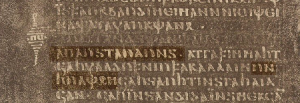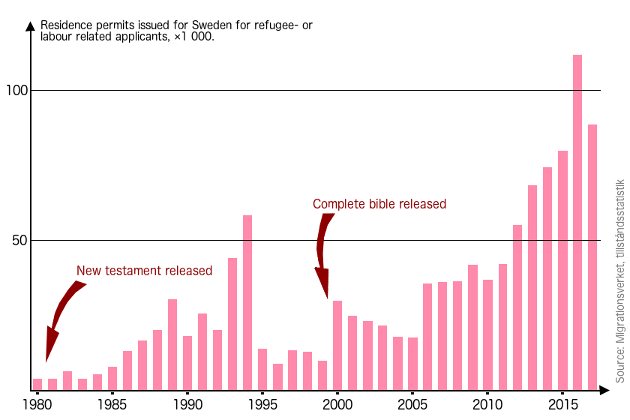Just joking.
Jeff A. Benner wrote an article at Ancient Hebrew Research Center about this verse:
‘None is able to serve two lords, for either he will hate the one and love the other, or he will hold to the one, and despise the other; ye are not able to serve God and Mammon.’ (YLT)
I would like to explore the idea of his last paragraph, so I quote half of it:
There is one other possibility that did come to mind as I studied the word mammon. This word could be a translation of the Hebrew word gad. Besides being the name of one of Jacob’s sons, gad is also a Hebrew word that means “wealth” or “profit,” just as mammon does. But not only that, both the Hebrew word gad and the Aramaic word mammon are also the names of gods, both being the gods of, you guessed it, “wealth and profit.”
That’s Jeff’s idea. What is my idea?
My understanding of Gothic history has them living near Syria up to late bronze-age, being the Guti people mentioned here by Wikipedia. Jordanes then, in his prehistorical section, has them splitting in two peoples, one being the Goths, the other being the Persians. This means we could have Gothic language underlying the biblical text at any point in time—Old Testament and New Testament—such as Jesus quoting a saying in Gothic and translating it into Hebrew, Greek or Aramaic.
What is this verse in Gothic if we replace ‘Mammonin‘ with a proper case of the name Gad?
Gad is not mentioned within the surviving Gothic corpus, but an *Azgad is mentioned in gentive “Azgadis” in Nehemiah 7:17. Actually, he is mentioned as Gad, as the Gothic version probably leaves out the Az- prefix. I find no class of nouns that end in -is in genitive singular, which end in anything other than -a in dative singular, except feminine words, but Gad was probably a male God, so we get:
… ni maguþ Guda skalkinon jah Gada.
… 𐌽𐌹 𐌼𐌰𐌲𐌿𐌸 𐌲𐌳𐌰 𐍃𐌺𐌰𐌻𐌺𐌹𐌽𐍉𐌽 𐌾𐌰𐌷 𐌲𐌰𐌳𐌰:
In addition, there may have been a change of word-order in translation, so the saying could have been:
Ni Guda jah Gada skalkinon maguþ.
Jewish Encyclopedia writes about Gad: “The name was doubtless originally an appellative, meaning “the power that allots.”” So next time you hear someone burst “Oh my Gad!”, you will know they serve not God, but the socialist government—the power that allots.



